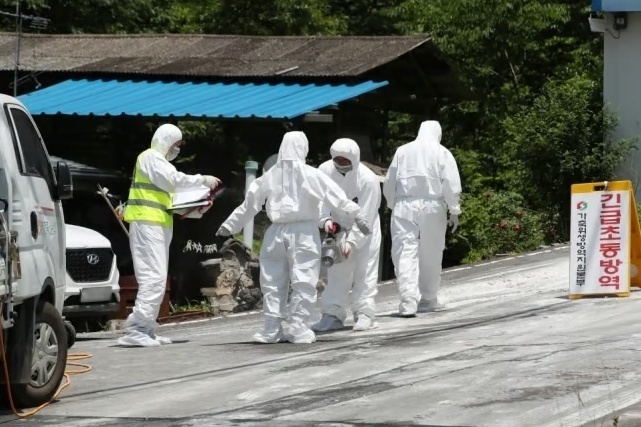The recent outbreak of African swine fever in many places in South Korea has aroused the concern of government departments. On July 7, Han Duk-soo Jiabao, the prime minister, ordered authorities to take emergency measures to prevent the spread of the disease.

About 900 pigs were raised in a pig far in Lichun County, North Gyeongsang province, 161 km southeast of Seoul, South Korean media reported Thursday. This is the sixth African swine fever outbreak reported in South Korea this year. The outbreak was also reported in Andong, also in North Gyeongsang Province, on February 2.
The Prime Minister’s office said in a statement that Han Duk-soo had ordered relevant government departments to take emergency preventive measures, including culling the pigs involved, issuing a transportation ban and conducting an epidemiological investigation.
Authorities have banned the transport of pigs and related facilities in Liquan County and six surrounding counties, with culling of pigs and disinfection of affected farms and nearby roads.
South Korea’s Ministry of Agriculture, forestry, livestock and food said it did not expect the culling to affect pork supplies in the local market because of the small number of pigs raised on affected farms.
African swine fever (ASF) is an acute, hemorrhagic and severe infectious disease of pigs infected with ASF virus, characterized by high fever, severe hemorrhage of internal organs and high mortality. ASF is not a zoonosis disease. The virus does not infect humans, but contaminated food or items such as shoes, tools and vehicles may facilitate transmission. The virus can survive long-term in non-hot conditions, there is no animal vaccine or specific drugs can be prevented.